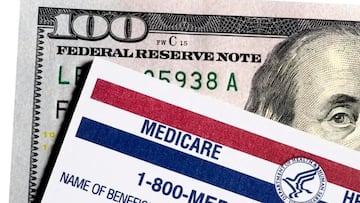How to spot and avoid scams on your Medicare account
Authorities are warning the public of a new method used for Medicare account scams. Here’s how to detect fraud, according to the Senior Medicare Patrol.

Medicare is a federal health insurance program that primarily provides coverage for people who are 65 and older, as well as certain beneficiaries with specific medical conditions. Through this program, young people with disabilities and patients with permanent kidney failure, for example, can get access to health care.
Coverage is divided into four parts: A, B, C and D. Part A is intended for hospital services, while B is used for services outside the hospital. Part C expands coverage of A and B; and finally, D covers prescription drugs. According to the Centers for Medicare and Medicaid Services (CMS), more than 65 million people are enrolled in Medicare.
Given the large number of beneficiaries, the amount of scams and frauds reported in Medicare accounts is increasing. For this reason, Medicare has a program that focuses on the detection and reporting of fraud- the Senior Medicare Patrol (SMP).
How to spot and avoid scams on your Medicare account
According to the SMP, the main cause of scams being pulled off is the lack of attention paid to documents on the part of the beneficiaries. Scammers take advantage of the fact that not all people read their Medicare account statement in detail.
Every month, beneficiaries receive a document that explains the payments made on their behalf. There are two main types of account statements: the Medicare Summary Notice or MSN, aimed at people enrolled in Original Medicare, and the Explanation of Benefits or EOB, for those who are enrolled in Part C and D of the program.
READ ALSO: How to receive $500 compensation from Walmart
“Reading your Medicare statements is the first line of defense in catching scammers,” SMP said in a statement.
“Whether you have Original Medicare, which provides Medicare Summary Notices (MSNs), or Medicare Advantage, which provides Explanations of Benefits (EOBs), you should always look at your statements carefully... reviewing them could help detect errors or possible fraud.”
According to the SMP, scammers used to send products not requested by the beneficiaries and charge them to their account. However, nowadays, the scammers no longer bother to send the products, they simply charge the beneficiary’s account, hoping that people will not notice.
If you did not order an item and in your statement the following products were charged, you were probably a victim of a scam:
- Urinary catheters and other urinary supplies
- Diabetes testing supplies
- Covid-19 test kits
To report suspicious activity on your Medicare account, contact your local Patrol directly at 1-877-808-2468.





